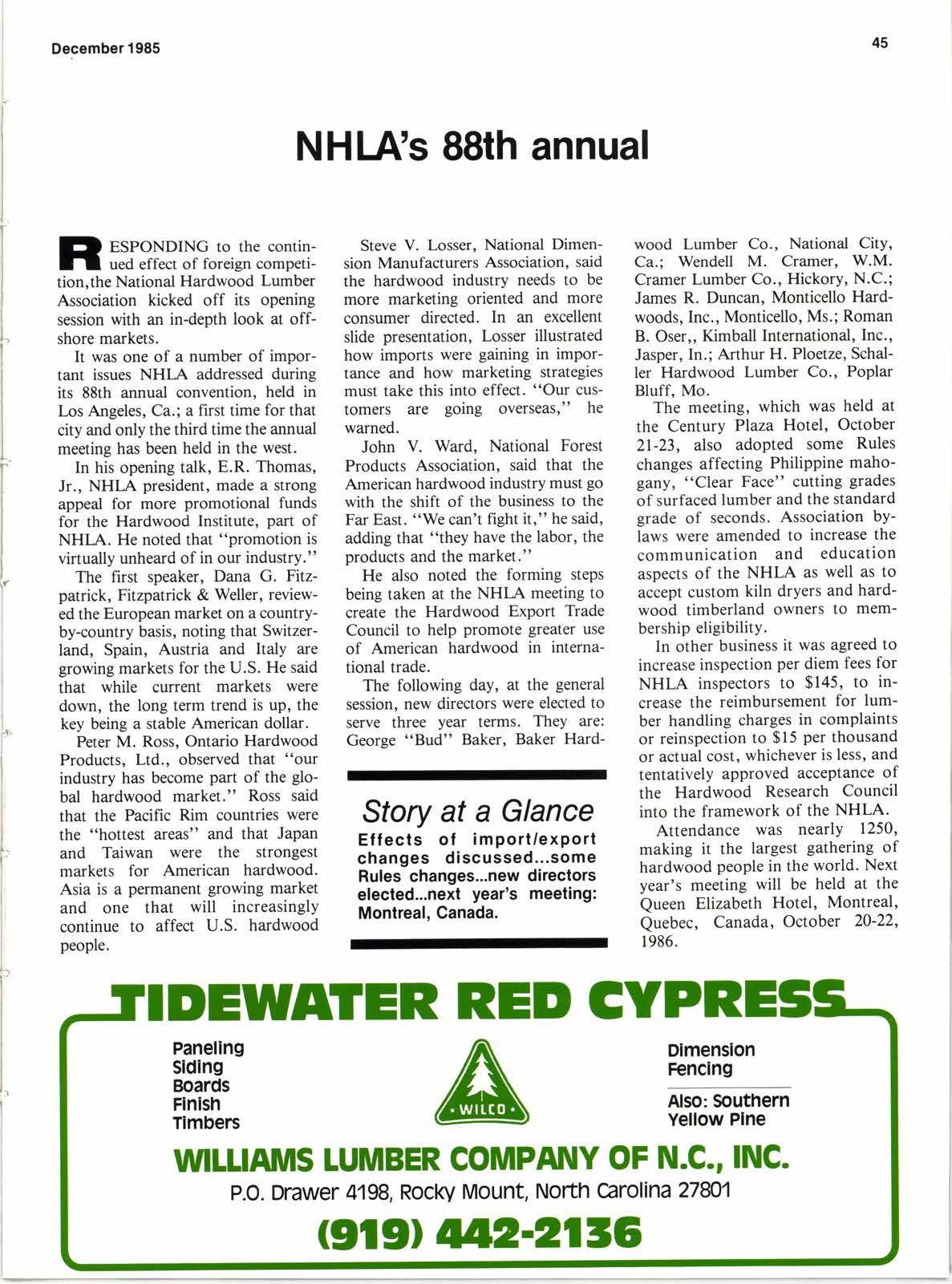
1 minute read
EDITORIAL I
DA!'ID CUTLER publisher
"The enormous speed of 15 miles per hout"
I N rHtS annual business forecast special issue I we present a number of forecasts from industry experts to help you in your planning for 1986. Many deal with the changes likely in the near future. The implicit challenge is for the reader to cope with and understand what new developments mean to the individual and the world in which he works and lives.
Recently we ran across a letter that puts into perspective this business of coping with change. It was written almost 157 years ago by then governor of New York Martin Van Buren, still eight years away from being president of the United States. Addressed to President Andrew Jackson, it is dated January 31,1829.
TO: President Jackon
January 31, 1829
The canal system of this counrry b being threatened by the spread of a new form of transportalion known as railroads. The federal government musl preserve the conab for the following reasotts:
One. If conal boats are supplonted by railroads, serious unemployment will result. Coptains, cooks, drivers, host' lerc, repairmen, and lock tenders will be left wilhout means of livelihood, not to menlion the numerous larmers now employed in growing hay for horses.
Two. Bost builden would suffer, and towline ship and harness moken would fu leJt datitute.
Three. Canal boats are absolutely wntiol to the delense of the United Stota. In lhe event of rhe exgtd trouble with England, the Erie Canal would fu the only means by which we could ever move the supplia so vilal to waging modern wor.
As you moy well know, Mr. Praident, railrud canioges are pulled ar the enormous s@ of l5 mila pr hour by engines which, in addition to endangering lde and limb of possengen, roor and snor! Iheir way through the countryside, vttingJire to crops, raring the livator'k and lrightening women and children. The Almighty certainly never intended thot people should trovel at such brukntk speed.
Martin Von Buren
Covemor of New York
What Governor Van Buren said wasn't factually incorrect, yet it so obviously demonstrates (from this vantage point) that he had no understanding of the dramatic revolution the rafuoads would produce in the sleepy society of the early l80s.
We wonder if computers andtheir ilk won't produce even more dramatic revolutions in our world. Will we be ready or will we be left behind, standing there with the tow line in hand, wondering what happened.











